How to Use AI for Data Analysis to Enhance Your Business Insights
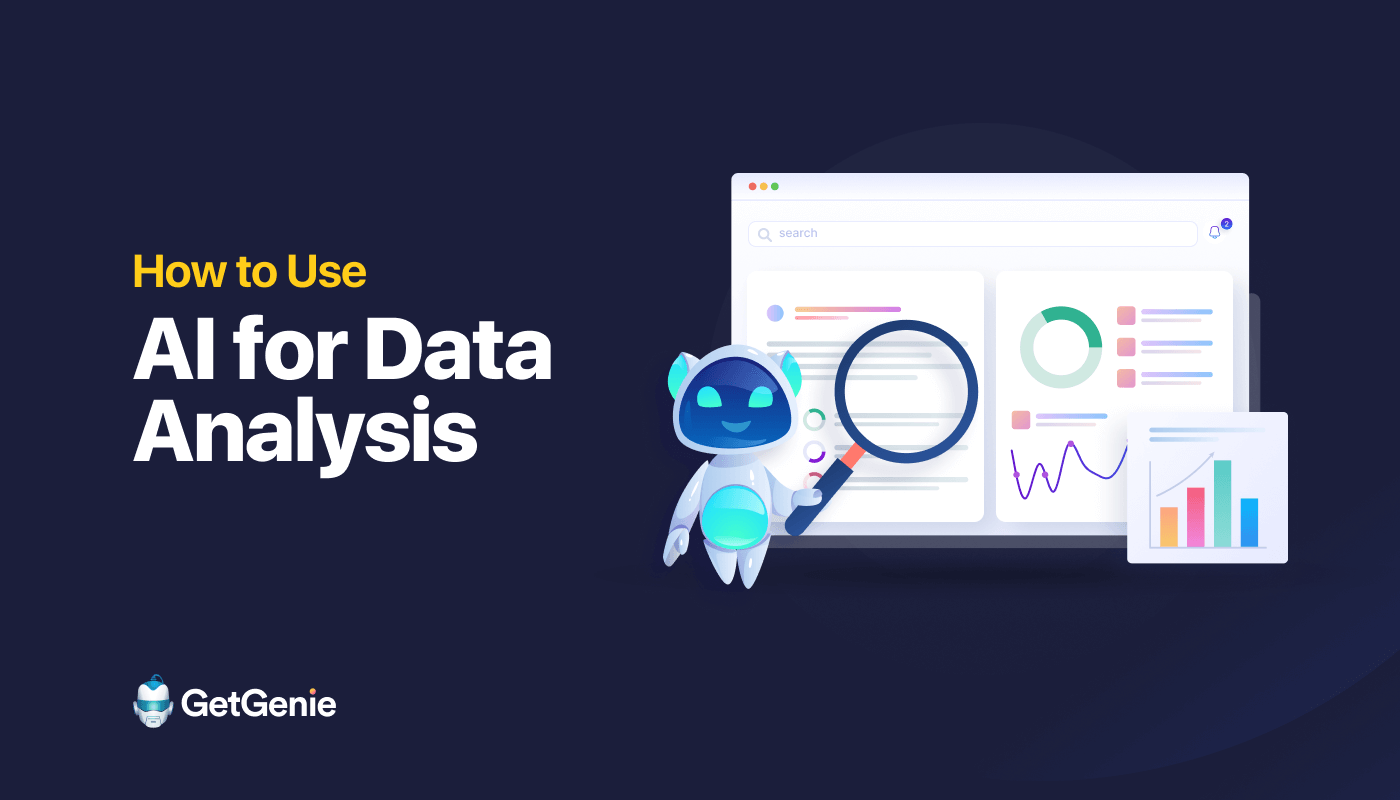
Understanding customer interests, preferences, & pain points is of the utmost importance to compete in the market. Regardless of the industry, these data can pave the way for your business to provide customers with personalized offers, thus maximizing the chances of conversions.
With voluminous customer data generated daily, traditional data analysis techniques are falling apart, necessitating a revolutionary technique. Luckily, AI has reached the level where it can process & extract insightful customer data, letting you plan targeted marketing activities.
Not just customer data, even your sales, marketing, and other data carry plenty of weight for your business to thrive. In this write-up, I will share actionable tips regarding how to use AI for data analysis to enhance your business offerings.
How to Use AI for Data Analysis
From defining goals to identifying data sources, you have to take a multitude of steps to utilize AI for your business data analysis. Here, I will show you the proven methods of data analysis to help you revamp your business.
Data Processing Automation & Analysis
Dealing with customer data is overwhelming as it entails complex information. Unlike traditional data analysis methods, AI can automate data analysis processes with ML algorithms, allowing businesses to handle large datasets efficiently and precisely.
Qualitative Data Analysis
Whether it’s customer conversations, interviews, or focus group discussions, AI tools can extract, automate, and convert these data into structured and analyzable info. This enables businesses to swiftly process and analyze large volumes of qualitative data with little to no manual intervention.
Insightbase, for instance, can scrap, structure, and analyze your database with AI, speeding up your data analysis process & helping you make informed decisions about your business.
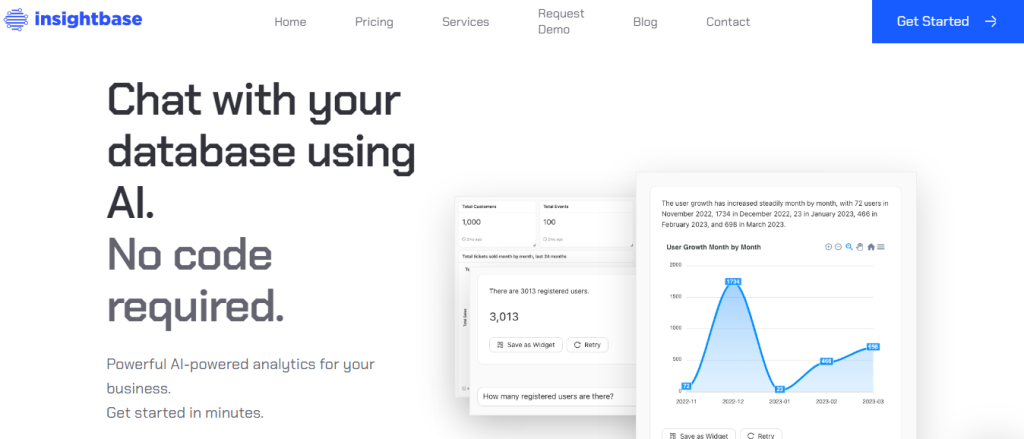
CRM Systems for Actionable Insights
CRM tools can run automation and analyze customer interactions as well as behaviors, rendering insightful data. These tools can help marketing & sales teams figure out high-value leads, forecast customer needs, and personalize interactions.
For example, HubSpot AI comes with robust AI features that process high-volume data to identify patterns, trends, and relationships, thereby providing actionable insights.
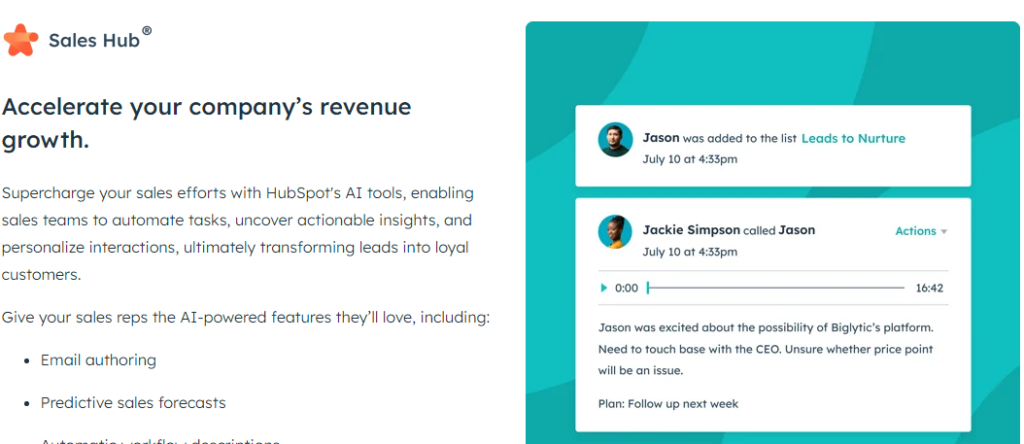
Social Media Monitoring
AI social media listening tools can scan social media data in real-time and figure out trends, sentiments, and emanating issues that may need instant attention. This automation feature helps businesses stay ahead of the curve and handle their online reputation more effectively.
Hootsuite, for example, leverages advanced AI features to detect trending topics, customer interactions, and more. This allows for identifying opportunities for product innovation, marketing campaigns, and content creation.
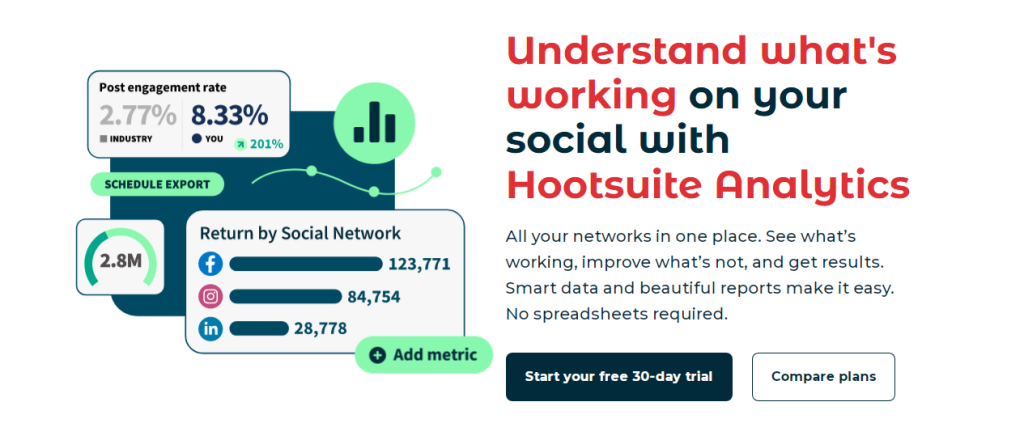
AI helps retailers analyze transaction data and find out which products are frequently purchased together. IBM Watson Analytics can predict customer buying patterns and help businesses optimize product placement and cross-selling strategies.
Predictive Analytics to Understand Customer Behavior
Predictive analytics is one of the most powerful applications of AI in customer insights. By analyzing historical data, AI can predict future customer behaviors and preferences, enabling businesses to anticipate and meet customer needs proactively. This predictive capability is crucial for improving customer satisfaction and driving loyalty.
Churn Prediction
AI models can identify early signs of churn and notify you upfront, letting you take timely steps. For example, Churnly is a fantastic AI tool that uses data-driven insights to predict which customers are likely to leave and why.
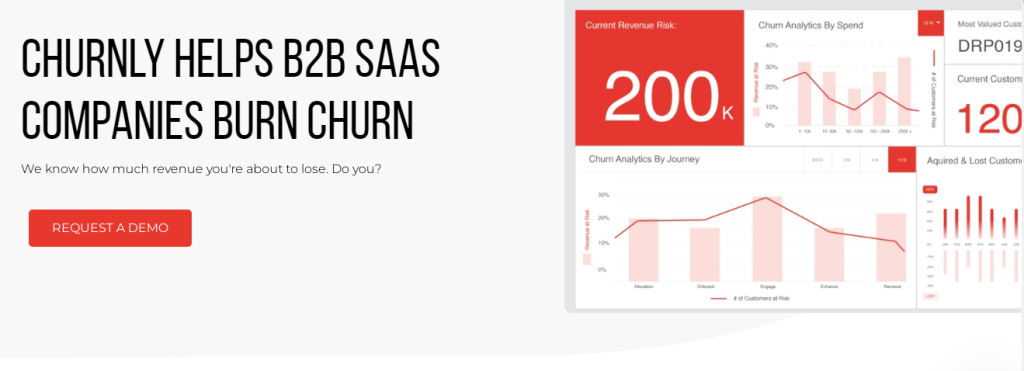
This allows you to take proactive action like offering tailored discounts or enhancing service quality to the dissatisfied customers and increasing their retention.
Behavioral Trend Forecasting
Salesforce Einstein predicts future customer behaviors and trends by analyzing historical qualitative data. You can leverage these predictions to anticipate customer needs and make preemptive adjustments to products or services to boost customer satisfaction and loyalty.
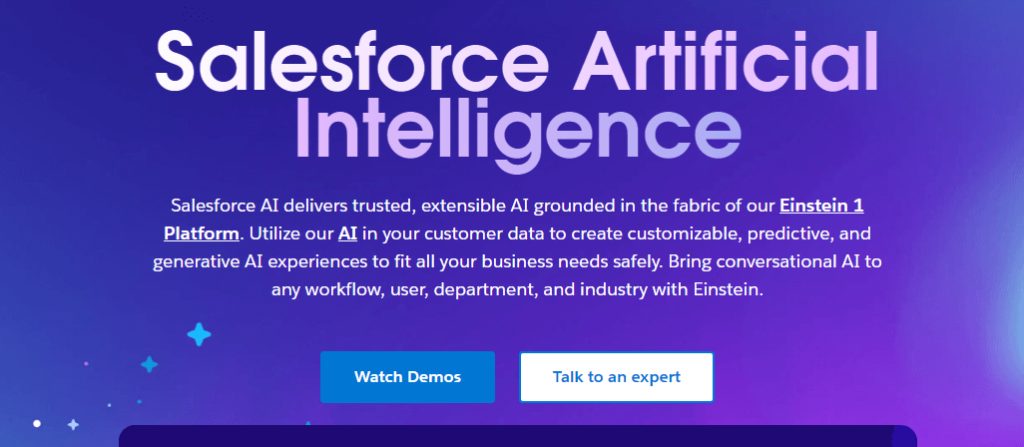
Product Recommendation Engines
Many e-commerce companies tap into AI-driven recommendation engines to suggest products or content based on a customer’s past interactions, browsing history, and preferences.
Ecommerce giants like Amazon make use of product recommendation engines to display customers exactly what they are looking for. This personalization effort boosts customer engagement and sales.
Customer Sentiment Prediction
Understanding what your customers think about your business is paramount. AI sentiment analysis tools go through customers’ views, reviews, feedback, and big data analytics to share with you what they think about products and brands. Based on that, you can optimize your offers and other customer-oriented factors to provide them with a smooth experience.
IBM Watson and Google Cloud AI can analyze customer interactions across multiple channels to predict sentiment trends. You can deploy these insights to upgrade your customer service strategies and address prospective issues before they compound.
Data Visualization for Enhanced User Experience
With AI-driven business intelligence tools, you can start building visual dashboards to support decision-making and present data engagingly & evidently. Interactive charts, graphs, etc. will let you explore and drill down into specific information to optimize your workflows.
To automate simple data visualization tasks, you can leverage some custom GPTs for data visualization in ChatGPT. For something more advanced, I recommend using business intelligence tools that offer AI-powered capabilities in their suite.
For example, Luzmo’s AI Chart Generator allows for typing in a simple prompt and getting interactive data visualizations as a result.
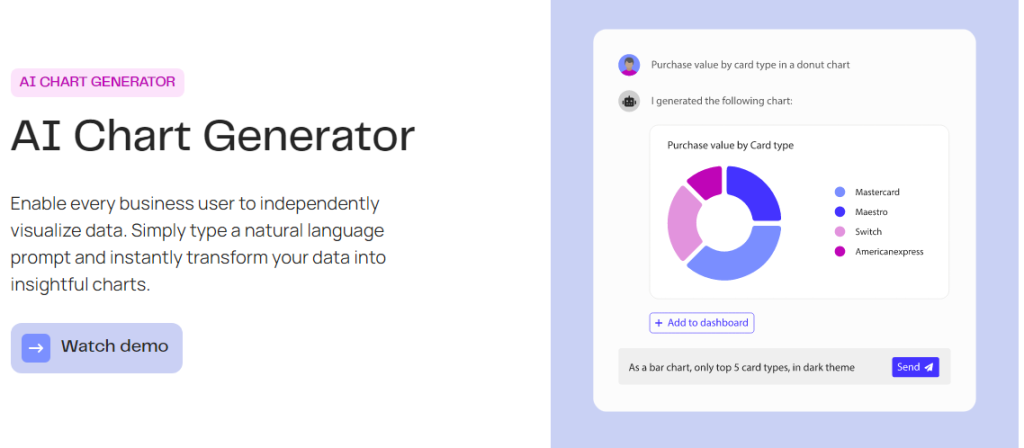
Perks of AI in Data Analytics
Why should businesses bother AI-ing their marketing analytics? The integration of AI into marketing analytics not only streamlines operations but also unveils opportunities previously hidden in vast amounts of data.
- Quicker Insights: AI analytics solutions can extract and collate vast amounts of data in a few seconds that would take hours or days for human professionals. This swift analysis means businesses can notch up crucial insights almost instantly.
- Fact-based Choices: AI-driven analytics tools ensure that marketing strategies are based on solid data, minimizing the reliance on guesswork and intuition. This results in more effective and targeted marketing campaigns.
- Personalized Offers: AI can pick up individual customer preferences. This allows for designing ads and promotions tailored particularly to individual tastes, leading to enhanced customer satisfaction.
- Cost-efficient Solutions: Automating data analysis with AI can lead to considerable cost savings. Manual data analysis requires various tasks accomplishment which can cost you a fortune. But with AI, you can avoid all sorts of wasteful expenses on ineffective marketing strategies.
- Navigating Customer Needs: With the knowledge of customers’ requirements, AI helps you amp up your offerings, leading to a more satisfying customer experience.
- Future Trends Prediction: AI makes predictions about future market trends based on previous customer data. This foresight allows businesses to be proactive, gearing up for imminent shifts in the market.
- Minimized errors: AI systems, as robots, are less prone to slip-ups that can occur with human analysis frequently, especially when dealing with voluminous datasets.
More Info: AI in Customer Service: Simplifying client service like never before
Embrace AI for Data Analysis
Customers’ demands & expectations are ever-changing and they need to be tracked. AI can track all the subtle customer behaviors and interactions with its automation & analysis power.
AI’s ability to automate data processing, optimize customer segmentation, predict future behaviors, analyze sentiment, and deliver personalized suggestions at scale makes it a vital tool for modern businesses.
So, integrate AI into your data analysis process, unlock data-driven customer insights, offer individualized offers to your clients, and generate improved cash flow as well as revenue.
